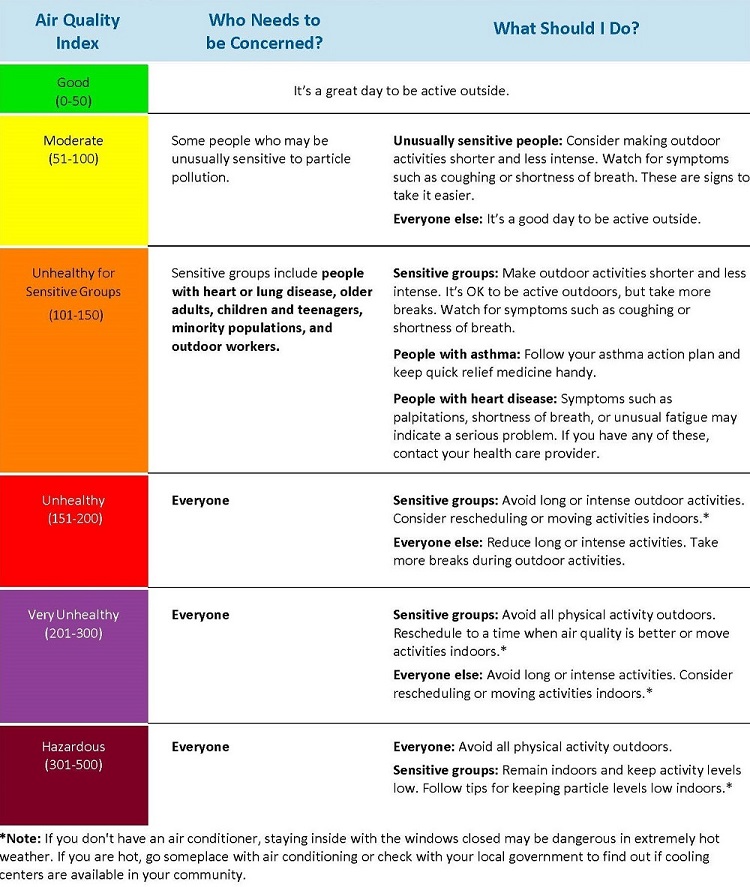There are few things in life as important as the air we breathe. Because there are many sources of outdoor and indoor air pollution that can have short and long-term effects on our health, it’s important that we take steps to minimize our risk and improve the quality of our air. This page provides information and resources on indoor and outdoor air quality as well as daily forecasts of air quality in Fairfax County and the region.
For more tools and information to help you learn about air quality, visit the Metropolitan Washington Council of Governments Air Quality Forecast page.
Air Quality Forecasts
Air Quality Index (AQI) tells you how clean or polluted your air is, and what associated health concerns you should be aware of. The AQI focuses on health effects that can happen within a few hours or days after breathing polluted air. The AQI is a system which uses five major air pollutants regulated by the Clean Air Act: particulate matter, sulfur dioxide (SO2), carbon monoxide (CO), ozone (O3), and nitrogen dioxide (NO2). For each of these pollutants, EPA has established national air quality standards to protect against harmful health effects. The Commonwealth of Virginia, Department of Environmental Quality is responsible for monitoring the air quality and reporting daily air quality levels to the public.
The Metropolitan Washington Council of Governments (C.O.G.) is responsible for reporting daily air quality levels to the public in this region. C.O.G. collects air quality data from selected monitoring stations on a daily basis from the District of Columbia, Maryland and Virginia. They provide this air quality forecast information on their website. When the index exceeds or will probably exceed 100, and when specific weather conditions exist, C.O.G. may issue a Health Advisory.
For current air quality, see real time data from AirNow.gov and Current Air Quality and Forecast from Virginia DEQ. For daily AQI forecasts, call the Air Quality Hotline at 202-589-1212, TTY 711.

Clean Air Tips
When particle pollution levels are high, take steps to limit the amount of air you breathe in while you're outside and to do your part to reduce air pollution. For example:
- Think about spending more time indoors, where particle pollution levels are usually lower.
- Choose easier outdoor activities (like walking instead of running) so you don't breathe as hard.
- Avoid busy roads and highways where PM is usually worse because of emissions from cars and trucks.
- Limit driving and when possible, combine trips, telework, carpool or use mass transit, including Fairfax Connector.
- Refuel vehicles after dusk and limit idling. Exhaust contains particle pollution that makes air quality worse on hot days.
- Avoid mowing lawns with gasoline-powered motors.
- Turn off lights and electronics when not in use.
- Keep air conditioning no lower than 78 degrees.
For more tools to help you learn about air quality, see Outdoor Air.
Resources
- U.S. Environmental Protection Agency (EPA) Office of Air and Radiation
- Air Now
- Air Quality Index | C.O.G.
- Air Quality Resources | Clean Air Partners
- Virginia Department of Environmental Quality
- Air Quality | CDC
- Protect Yourself from Wildfire Smoke | CDC
- Particle Pollution | CDC
- Hazardous Air Pollutants | EPA

